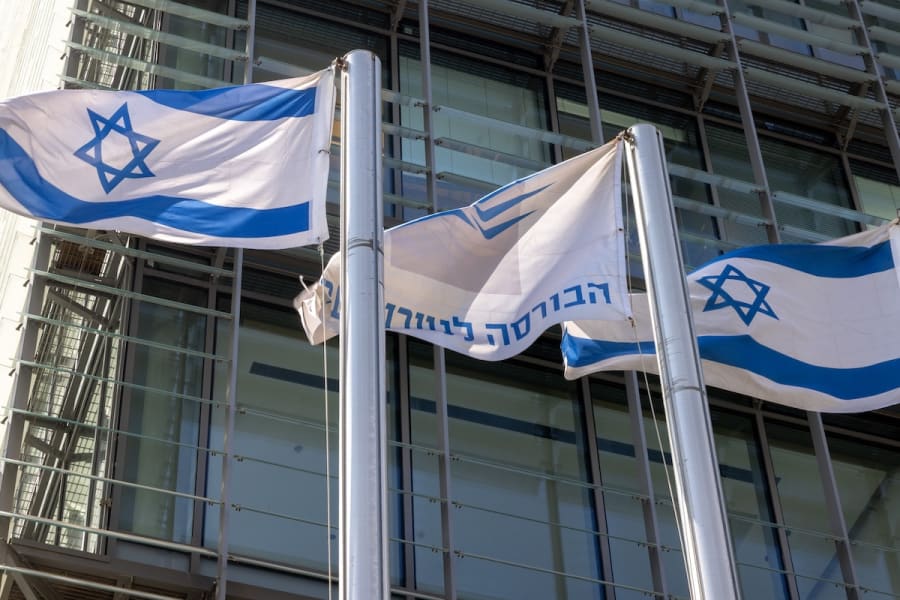Israel’s stock market delivers world-best returns amid war

While missiles flew and tensions ran high between Israel and Iran, the Tel Aviv Stock Exchange quietly pulled off something extraordinary – it rallied. In a setting where most investors would have expected a full-blown market meltdown, Israeli stocks did the opposite. Defying every grim forecast, the TA-125 jumped more than 8% during the height of the hostilities, and the TA-90 shot up 11%, as if the market didn’t get the memo about the war. Zoom out, and the picture gets even more impressive: over the past year, the TA-125 has delivered a staggering 50% return – making Israel one of the top-performing stock markets in the world. Turns out, resilience isn’t just a national trait. It’s built into the market too.
In the days leading up to Israel’s strike on Iran, investor sentiment was marked by intense anxiety. Analysts widely predicted a selloff, and financial media braced for a collapse in asset prices. What followed, however, was a classic case of markets proving forecasters wrong. On the Sunday after the initial military exchange, instead of panic, Israeli equities surged – defying every conventional assumption about how stocks behave in wartime.
The bond market initially hesitated, but within 48 hours, fixed income yields also adjusted to reflect improved sentiment. Bottom line, those who exited their positions in anticipation of a prolonged crisis not only missed the upside but forfeited what turned out to be a year’s worth of gains compressed into a matter of days.
While foreign investors have been net buyers of Israeli equities throughout 2025 –accumulating over NIS 9 billion since January – they took a brief step back during the height of the war with the Iranian regime, trimming positions by approximately NIS 403 million. Their selling, however, was the exception rather than the rule. It was Israel’s own institutional investors who took the lead, re-entering the market and scooping up NIS 633 million worth of shares as markets rallied.
The public followed suit. Through mutual funds and ETFs, domestic investors injected nearly NIS 400 million into the market during the fighting, continuing a trend that has seen more than NIS 5.6 billion in equity inflows since January. These purchases concentrated particularly on core Israeli-focused benchmarks such as the Tel Aviv-125 which consists of companies with the bulk of their operations rooted locally.
This growing wave of local investment isn’t just driven by national solidarity or short-term bargain hunting – it reflects confidence in the fundamentals. Despite the heavy toll of both the ongoing Iran conflict and the protracted Iron Swords War, Israel’s economy remains fundamentally strong. Deficit expansion and war-related spending will weigh on fiscal metrics, but analysts still point to resilient GDP growth, stable inflation expectations, and a banking sector that has shown remarkable robustness.
In other words, this wave of local investment wasn’t just a reaction to short-term price action – it reflected a broader narrative of confidence. While foreign investors may have opted to lock in recent gains, Israeli institutions and households were looking beyond the headlines. Their renewed buying activity signaled not only a belief in the economy’s resilience but also a strategic shift back towards long-term domestic opportunities.
That same forward-looking mindset is now shaping the next leg of investor focus. What’s grabbing investors’ attention now isn’t the conflict – it’s what comes after. Sentiment has shifted from fear to FOMO (Fear of Missing Out), as eyes turn toward the recovery and rebuilding phase. Companies tied to infrastructure, construction, and consumer demand are moving into focus. With reconstruction plans taking shape and domestic activity expected to rebound, these sectors are already being repriced. Investors are positioning for a cycle driven by credit expansion, renewed tourism, and a wave of post-crisis spending. The dust may still be settling, but the market is already racing ahead to the next chapter.
Perhaps the most compelling forward-looking development is the changing tone in global credit circles. While rating agencies adopted a cautious stance during the height of the war, some economists are now speculating that an end to the hostilities – coupled with Israel’s fiscal discipline and resilient economic indicators – could pave the way for a future credit rating upgrade. Such a move would not only reduce Israel’s cost of borrowing but also attract additional foreign capital into both equity and bond markets.
The Israeli stock market’s recent performance under fire offers a compelling case study in resilience, repriced risk, and the decisiveness of local investors. What initially looked like a perfect setup for capital flight has instead become a magnet for fresh investment – not because the region suddenly became risk-free, but because the biggest threat has now receded. With Iran’s attempted escalation effectively neutralized and its deterrence weakened, investors are reassessing the landscape. The primary geopolitical risk has diminished, and the market is responding accordingly – shifting from crisis mode to a forward-looking view anchored in recovery, reconstruction, and long-term opportunities.
Of course, that doesn’t mean all the challenges are behind us. Even as the geopolitical clouds begin to lift, Israel still faces the economic burden of three wars in under a year – rising deficits, fiscal strain, and inflationary pressures remain part of the picture. Yet many economists argue that Israel’s economy remains remarkably intact. Growth is ongoing, the shekel is stable and even strengthened in the last twelve days, and core sectors are still expanding. Investors, both domestic and global, are beginning to recalibrate their view of Israel – not just as a geopolitical hotspot but as an underappreciated, fundamentally sound, and forward-looking market. For those with a medium to long-term horizon, the current environment presents not only a recovery story but also a strategic opportunity. The message from Israel is clear: wars may shape the headlines, but fundamentals still drive the markets.

Ihor Pletenets is a finance professional with a B.A. (Hons) in Accounting and Finance from the University of West London. His interest in the stock market began during his student years and naturally led to a career in the financial industry. After spending several years in the capital markets in the UK, he moved to Israel and joined the Israeli portfolio management firm Wise Money Israel. He currently resides in Tirat Carmel with his wife and their daughter.













